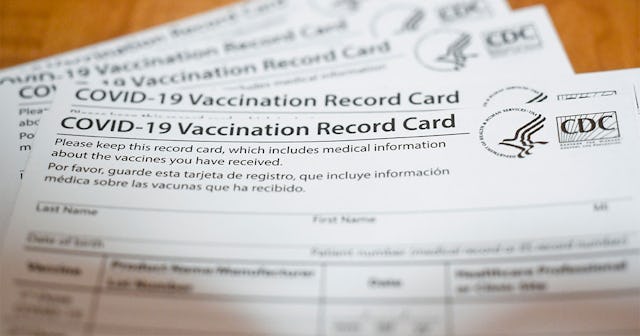New CDC Data Shows Vaccine Efficacy Does Wane Over Time

New evidence shows that COVID-19 vaccine efficacy does wane over time and in light of the Delta variant spread
It obviously pays to be vaccinated against COVID-19 as you’re extremely unlikely to be hospitalized and will most likely struggle with milder symptoms if you contract the virus, however, new evidence suggests that with time and the Delta variant, COVID-19 vaccine efficacy is waning.
Two CDC studies published this week shed light on the vaccine’s effectiveness against the Delta variant.
One CDC report published this week tracked people in Los Angeles who were testing positive for COVID-19 between May 1 and July 25, 2021, and found that 25.3% of cases were in fully vaccinated persons, 3.3 % of cases were in partially vaccinated persons, and 71.4% of positive cases were from unvaccinated people.

Another CDC report that studied COVID-19 infections in a group of healthcare workers states that from December 14, 2020–April 10, 2021, the Pfizer and Moderna vaccines were approximately 90% effective in preventing infection. However, data in a post-Delta world shows that the vaccines are only 66% effective. Basically, vaccines were 91% effective before Delta and 66% effective in a post-Delta world, but experts say that the adjusted vaccine efficacy considering all things is that those two vaccines are now about 80% effective.
Booster doses are recommended eight months after a person’s second dose.
This new data is why the CDC and the White House are rolling out booster doses next month on September 20, 2021. They are advising that anyone who got the Moderna or Pfizer vaccine get a third dose eight months after their second shot. Officials say they expect people who received the one-dose Johnson & Johnson vaccine will need an additional booster as well, but they’re waiting for results from a clinical trial on patients who received two doses of that vaccine. The results should be available next month.
Once booster shots are announced and approved, they would likely go to nursing home residents, healthcare workers, and other essential workers first. Then, they’d be distributed in roughly the same order as the shots were given earlier this year, with older Americans and those with underlying health conditions first in line. People should get the same vaccine as the one they had before, officials say.
“We are starting to see evidence of reduced protection against mild and moderate disease,” according to a statement issued last week by the CDC and signed by Director Dr. Rochelle Walensky and other White House medical leaders. “Based on our latest assessment, the current protection against severe disease, hospitalization, and death could diminish in the months ahead, especially among those who are at higher risk or were vaccinated during the earlier phases of the vaccination rollout.”
“[The booster shot] will boost your immune response,” President Joe Biden said last week. “It will increase your protection from Covid-19.”